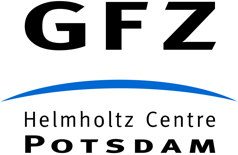
Henning Lilienkamp
HEIRBiDS PhD-candidate in Geo.DataScience
#Seismic risk assessment #Ground motion modeling #Network analysis #Deep neural networks #Telecommunication networks #Geostatistics
Enhanced Computational Approaches for Seismic Risk Assessment of Infrastructure Networks
Supervisors: Prof. Dr. Fabrice Cotton(GFZ) and Prof. Giuseppe Caire, Ph.D. (TU)
Project Outline:
In many regions of the world earthquakes pose a persistent threat to the built environment, especially with respect to the civil infrastructures that are now fundamental to our society. In the aftermath of recent earthquakes, such as the 2010‐2011 Christchurch (New Zealand) events, damage to road, railway and utility/communications networks may be the dominant contributor to economic loss, with socio‐economic impacts that can last for a long period after the event and impede the recovery. The importance of analysing the seismic risk and vulnerability of spatially distributed infrastructure networks is becoming widely recognized by engineers, insurers and the scientific community at large. Such analyses present a challenge to scientists and engineers due to the complex interactions between interconnected elements within the infrastructure. The statistical models require a computational complexity so large as to prohibit the real‐time assessment of the post‐event network state. Conversely, simplified models may fail to capture the correlations and dependencies within a system in its entirety. In this project we introduce novel machine learning techniques into this process to provide statistically robust assessments of the performance of a network, in terms of both connectivity and flow, that would allow for rapid evaluation of the impact of an event for use in the immediate aftermath and recovery phase, or as part of a probabilistic assessment of economic loss.




